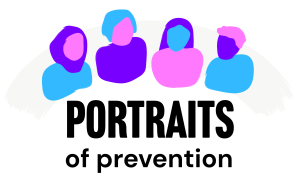
Daniel
Masculinities and working with men and boys
Daniel is a practitioner working in a practice leadership role in a program specialising in masculinities and working with men and boys. While there are a range of programs that work with men and boys to address health and social issues, this work is distinguished by its principled and evidence-based approach to addressing the drivers of family and gendered violence.
These programs have a dual role in engaging directly with men and boys through community education and engagement programs and in sharing their knowledge and expertise with others through research and workforce capacity building. They also act as a bridge between the primary prevention workforce and individuals and organisations working in mental health, men’s health, relationships and consent and young people.
Others work in other settings or sectors, engaging with men and boys as part of other primary prevention programs. Until recently, this work was somewhat siloed. However, there has been increasing recognition of the critical importance of an integrated approach that considers masculinities and engaging men and boys both as a key audience for prevention activities and as part of the family violence workforce.
Daniel designs, leads and delivers programs that engage directly with men and boys to promote respect, accountability, gender equity and health and wellbeing. These programs are delivered in a range of settings, including councils, women’s health services, schools and TAFEs.
His work aligns with the primary prevention approach detailed in Change the story. This is supplemented by resources such as the Men in Focus evidence and practice guides and is informed by findings of key studies such as Unpacking the Man Box and Willing, Capable and Confident.
The program Daniel helps lead also provides professional development to workforces engaging with young people, and young men in particular, in violence prevention or sexual assault prevention.
Daniel’s journey began as a secondary school teacher. During this time, he helped pilot the Respectful Relationships program, advocating for its integration and observing firsthand how social pressures on boys to present a certain way to their peers could evolve into problematic attitudes and violence toward girls. His lived experience with family violence has also profoundly informed his approach to his work. Daniel has noticed that lived experience has been a motivator for many of his colleagues doing similar work. Others come from working in family violence response and have moved to prevention for a break from frontline work.
Daniel brings valuable experience to his role, including a deep understanding of school environments and the challenges teachers face. His background in teaching and curriculum development allowed him to speak the language of educators and program participants. He is skilled in program logic and designing practical learning frameworks that prioritise participant takeaways. Daniel is also comfortable engaging with young people and facilitating challenging conversations using audience-appropriate language, a skill he leverages to ensure his programs resonate and drive change.
Since then, Daniel has familiarised himself with sector-specific terminology, including family violence prevention, early intervention and response practice, partnering with women’s organisations, principles for engaging men and boys and knowledge translation techniques. He also incorporates research like the Man Box study into his practice and uses motivational interviewing as a key strategy in his engagement approach.
Daniel and his colleagues participate in Communities of Practice facilitated by Safe and Equal and Our Watch, like Men in Focus, where he engages with colleagues to refine his approach and embody prevention principles. These sessions reinforce the shared learning aspect of his work, where he and participants continuously navigate and challenge social norms like the “man box” together.
Daniel’s work is highly nuanced and underpinned by a strong set of evidence-based principles that help ensure his work with men and boys is safe and effective.
When discussing effective and safe work with men and boys, Daniel stresses the importance of role-modelling gender equality, self-reflection and growth. In his programs, facilitators and participants navigate and challenge social norms, such as the “man box,” together through shared learning. He believes that there is sometimes too much emphasis on what men and boys should avoid, with less guidance on what positive change looks like in practice. Daniel cautions against an “all-or-nothing” approach that stresses “challenging conversations” or “stepping up,” instead advocating for incremental reframing that nudges participants toward tangible, everyday actions that promote gender equality and encourage healthier behaviours.
Daniel approaches intersectionality as a continuous learning process. He considers various overlapping identities and how these shape participants’ perspectives, especially their understanding of male privilege. He makes sure that his work incorporates stories from a range of diverse backgrounds to help build empathy for people of all genders.
Read more portraits of prevention
Bel
LGBTIQ+ primary prevention – Rainbow Health Australia
Bel is a manager at Rainbow Health Australia and leads the LGBTIQ+ Family Violence Prevention Project.
Shweta
Early intervention
Shweta is a program manager leading a gendered violence prevention and early intervention program at a Women’s Health organisation, which is part of Victoria’s Women’s Health Services Network.
Anthony
Vocational education setting
Anthony is a project lead at a TAFE, supporting initiatives that promote gender equity, diversity and inclusion, and prevent violence.



